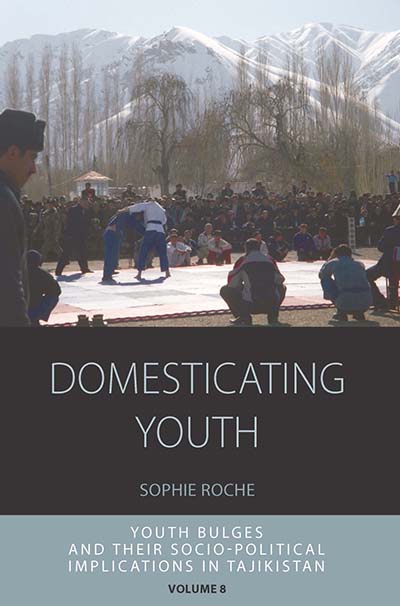It is common for a society’s population to grow exponentially after a war. In the U.S., the best example of this “youth bulge” is the population of post-World War II “Baby Boomers.” In her soon-to-be-released volume, Domesticating Youth: Youth Bulges and their Socio-political Implications in Tajikistan, Sophie Roche explores this phenomenon in post-civil war Tajikistan and what its implications may be. Following, the author reflects on her fieldwork, and shares how it felt to return to her site after a decade of absence.
_____________________________________________

With an ethnographic book a story is out in the world that has been documented for a while but that does not stop with the last page but continues to develop. Often after reading an ethnographic study I wonder what happened to the actors in the book, some of whom we are introduced very intimately; what happened to the place, the village, the authorities, the children? Where they really just living to be examples of a theory? How does the story of the people develop after the book?
The story of Domesticating Youth, which is the story of youth in the post-Soviet republic Tajikistan, continues rather unpleasantly – a new military conflict hits the area in 2010 and 2011. Blamed for “terrorist activities” the village community is put under pressure by state troops whose goal is to clean the area of oppositional forces. The war has brought tremendous changes to the area – much of the local administration was replaced and people have been robbed of their natural resources (coal mine, forests and pastures) that over the last decade had been made accessible to ordinary people, and even more sons left for Russia blamed of collaboration with “the terrorists.” I went back in 2011 and could hardly recognize the people – how can the mood of society change so much in ten years’ time! I first visited the place in 2002 when the civil war was still in memory, it was dominating the conversations and the actions of people.
Fear informed their activities and the wish for peace and freedom dominated their dreams. In 2006, which is the year in which much of the ethnographic data for the book was collected, optimism and trust had made space to this fear – youth was enthusiastic, competing to become good Muslims, good modern people, and most importantly to accumulate wealth. The village size grew rapidly, the design of houses changed (one finds many Russian-type dachas) and political differences were put aside for the sake of peaceful cohabitation.
But in 2009 a mullah came to the village and started to teach children in guerrilla tactics – a former combatant of the civil war. The secret police that had so magnetically traced my work from the first until the last day not missing one opportunity to check on my material and person suddenly was unable to arrest one disturbing actor which no one wanted in the village! Or was it rather a welcome opportunity to enter the area with the whole military force and clean it once and for all from any opposition? Eight months the military troops chased and pressured people lancing an anti-Islam campaign unseen since the Brezhnev years.
Thus the book Domesticating Youth is the first part of the story of a youth that moves from being the hope of the Bolsheviks to their primary enemies, from the future of independent Tajikistan to its terrorist other. Ethnographic fieldwork means to witness changes over time and each book is a unique flash with one specific view into society, life and development.
___________________________________
Sophie Roche studied Central Asian Studies and Social Anthropology in Berlin and did long-term fieldwork in Tajikistan while at the Max Planck Institute for Social Anthropology in Halle, Germany, between 2005 and 2010. She has conducted research on the impact of conflicts on individual biographies and on demographic change. Her most recent work focuses on Islam and has resulted in the innovative edited volume, Central Asian Intellectuals on Islam (ZMO Studien 2013).
